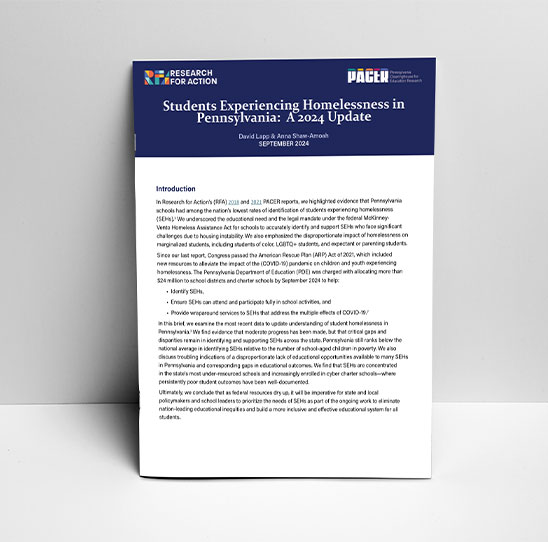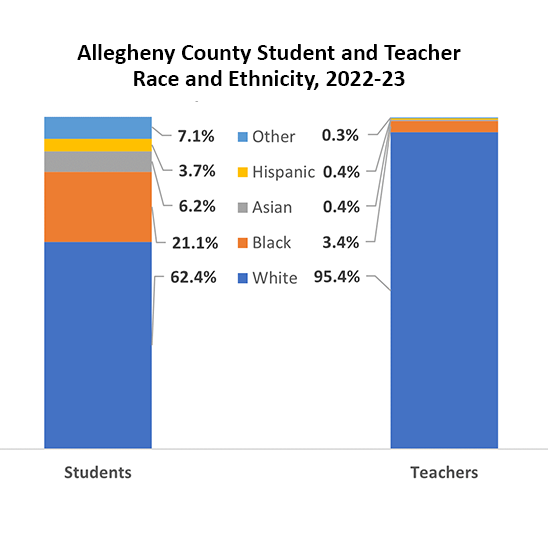Recent momentum to develop a trauma-informed education system provides an important opportunity for Pennsylvania schools. About two out of every three school-age children are likely to experience at least one traumatic event, such as abuse, neglect, or exposure to violence, by age 17. The effects of traumatic stress can include negative impacts on cognitive, academic, and behavioral outcomes, yet many schools lack the staff and systems necessary to meet the needs of students who have experienced trauma. Although further research is needed, trauma-informed education shows promise in preparing schools to help mitigate the effects of trauma on students.
In order to contribute to a wider understanding of trauma-informed education, this brief:
- Defines childhood trauma and summarizes existing research on its prevalence in Pennsylvania;
- Outlines the relationship between trauma and student learning and behavior;
- Summarizes the evidence about the characteristics and impact of trauma-informed education; and
- Highlights examples of trauma-informed approaches in Pennsylvania and elsewhere.
Our brief outlines a promising research base supporting legislation aligned with developing, expanding, and further researching promising practices in trauma-informed education.










